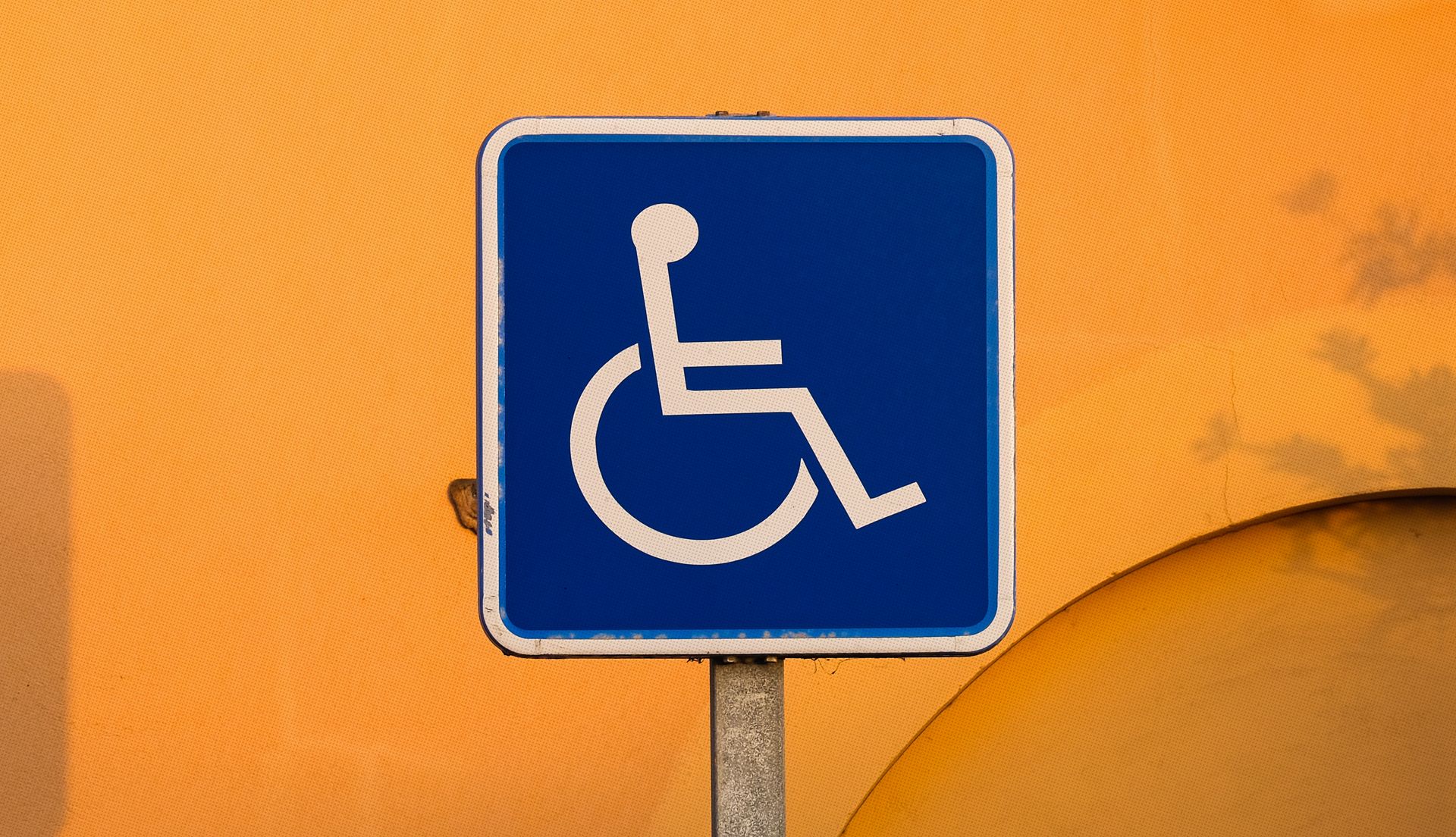Growing up as a deaf-blind individual in Oakland, California, disability justice lawyer Haben Girma was told by many teachers, "you have to work harder than sighted-hearing students if you want to be successful." Taking this advice to heart, Girma graduated valedictorian from high school and went on to earn her bachelor's degree.
But after graduating and realizing she couldn't find a job due to workplace discrimination, Girma knew she had to take action to fight for the one in four U.S. adults who live with some type of disability. "I did not grow up thinking that I would want to be a lawyer," she told Chief at a recent members-only event. "What pushed me in that direction was the fact [that] I couldn't get a job as a dishwasher and that really terrified me. If people didn't even want to hire me to wash dishes, what on earth was I going to do? How would I make a living? How would I contribute to society? It made me more aware of ableism and the systemic problems facing disabled people."
Today, Girma is the first deaf-blind person to graduate from Harvard Law School, having earned international recognition for her work around disability rights. The lawyer shares four things company leaders can do today to not only hire more disabled people, but to also ensure that their workplace is psychologically safe and welcoming for these individuals to thrive.
Avoid Stereotypical Cliche Statements
At a Harvard networking event where attorneys were brought in to talk to students about potential job opportunities, Girma recalls how one lawyer in particular only spoke to her interpreter the entire time and ended the conversation saying, "I've enjoyed watching you two. Tell her she's very inspiring," before walking away.
"He was not inspired to offer me a job," says Girma. "A lot of non-disabled people, when they feel awkward and uncomfortable about disabled people, they end up saying cliches like calling us 'inspiring.'" But Girma makes it clear that the word is often associated with pity and using it in conversation perpetuates the marginalization of disabled people.
"A lot of us cringe when we hear someone being called [that] because chances are it's probably in a disrespectful, hurtful way," she says. "But I'm absolutely happy and touched to be called inspiring if it's connected to action. If someone says, 'I'm inspired to increase hiring for disabled people at my company,' [then] that's positive inspiration."
Eliminate Shame in DEI Conversations
So often, leaders try to avoid using the term "disabled" when referring to employees with a disability, but Girma says that dancing around this word is the biggest mistake executives can make when it comes to including these individuals in DEI work.
"There have been conversations where some people [say], No, don't say 'disabled,' say 'special needs,' 'differently-abled,' 'handy-capable,' and so many other quite interesting efforts to avoid saying the word 'disabled,'" explains Girma. "But, when you are toeing around the word, when you are engaging in linguistic gymnastics to avoid saying a word, you are perpetuating stigma and you are continuing the shame. So lots of disabled activists are claiming the word 'disabled' and saying, We feel pride. This word connects us to community and we want to use the word rather than using words that inadvertently, unintentionally end up perpetuating stigma."
Create Space for People to Disclose Their Disability If They Choose
Part of fostering a more inclusive workplace is establishing an environment where people can comfortably disclose their disability status, says Girma. Doing this helps to further eliminate stigma and stereotypes about disabled people not being able to adequately work. "It should be a choice," she says. "There are lots of spaces where it's not actually a choice. Where people are not disclosing their disabilities because the risk of employment discrimination is so real and they're rightly afraid to disclose that part of themselves. This is particularly relevant for people with non-apparent disabilities." According to a study from DEI organization Coqual, just 39% of employees with disabilities have disclosed their status to their manager, and even fewer have shared their status with their team or HR department.
Center the Needs of Disabled People in Innovation
As technology continues to advance, Girma says that prioritizing digital accessibility is key to creating an inclusive workforce. "The websites should be fully accessible," she says. "The apps that you create and build should be fully accessible and messaging on social media, email messaging, that should also be fully accessible." This includes, she says, adding captions and transcripts to videos, and adding photos, image descriptions, and alt text to your website.
Additionally, Girma says as companies continue to innovate their platforms it's critical that they prioritize using human-built accessibility features rather than features that are automated. "There are companies out there claiming to automate accessibility and make your website [quickly] accessible by adding just one line of code," she says. "But from my personal experience, and the experience of many of my blind and other disabled friends, those services don't work and they sometimes even make the website worse and more difficult to use. So prioritize accessibility companies that have human expertise rather than relying on automation."
As more leaders work to expand their DEI efforts to include disabled individuals, Girma emphasizes that adding accessibility features to digital platforms and workplace presentations is beneficial to everyone. "Sometimes there are details in photos and videos that sighted people don't notice until it's pointed out to them," she explains. "So visual descriptions help both sighted and blind individuals. It's also helpful for people who are multitasking… So when you provide information in multiple formats like visual, audio and text, you reach more people and make an environment more inclusive for non-disabled, disabled, and those with situational temporary disability."

